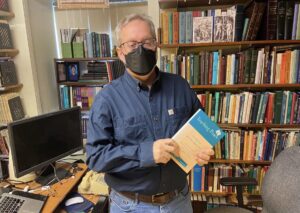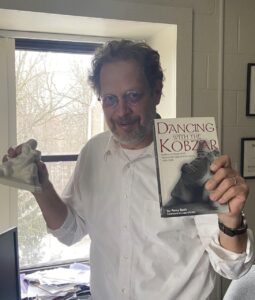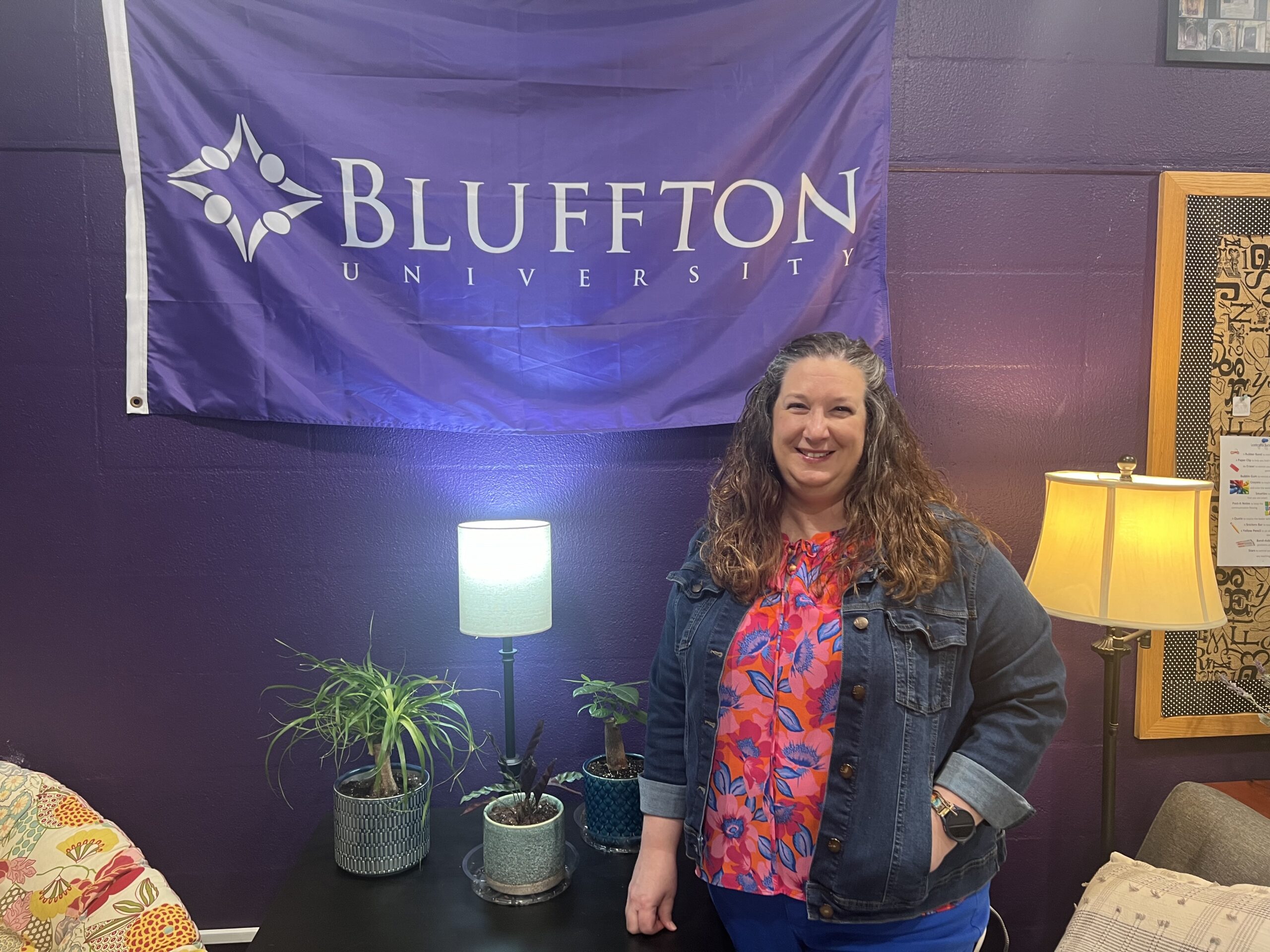“Shaped by the historic peace church tradition and nourished by a desire for excellence in all phases of its programs, Bluffton University seeks to prepare students of all backgrounds for life as well as vocation, for responsible citizenship, for service to all peoples and, ultimately, for the purposes of God’s universal kingdom.” (Bluffton University mission statement)
In today’s world, many religious affiliated universities are veering toward a more secular campus lifestyle. Harvard University, an originally Puritan university, is one such school. In a time where Bluffton’s campus has a minority number of students identifying themselves as Mennonite, one may wonder: is Bluffton still Mennonite?

Professor of Communication Gerald Mast in his office in Byers Hall. Photo by Aspyn Rafac.
In trying to uncover an answer, Professor of Communication Gerald Mast, first identifies the Mennonite values that are still closely followed in Bluffton’s heart.
“I think that the most prominent and obvious core value that has always been part of Bluffton’s history and is also deeply connected to the Mennonite church is the value of peace and peacemaking,” said Mast.
According to Mast, Bluffton continues to uphold this value of peace with organizations like Peace Club, faculty practices on the Bluffton value of peace and even publishing a book together titled Teaching Peace.
Professor of History Perry Bush also shared thoughts on Bluffton’s core Mennonite values.
“Mennonites are a peace church, but they aren’t the only peace church,” said Bush. “Sometimes I worry that we recognize Mennonite values as solely Mennonite, which they are not.”
Bush explained that values such as peace, justice, concern for the poor and poverty reduction are not absolute Mennonite or even solely religious values. He mentioned Bluffton alumnus Baldemar Velasquez as an example, saying he is a successful labor union activist who represents values that Bluffton hopes to instill in all graduates, but he is not Mennonite.
“I will say this is a Mennonite College founded by the Mennonite church and these are particularly values that we hold dear and want to transmit to our students on some way by writing them into our general education curriculum,” said Bush.

Perry Bush with his book “Dancing with the Kobzar”. Photo by Aspyn Rafac.
Bush listed Bluffton’s cross-cultural experience and the required course for seniors, Christian Values in a Global Community as core value-oriented curricula unique to the university.
But in a world where peace is struggling to be upheld at a global level, one might wonder how Bluffton maintains this value of peace in its campus community. To give some insight, Mast and Bush both shared their thoughts on pacifism and the current political climate involving Russia and Ukraine.
“Ukraine of course plays a very significant role in Bluffton’s history. It plays a very big role in the Mennonite history,” said Mast. “A substantial number of Mennonites migrated there in the 18th and 19th century and all of these colonies were disrupted by WWI and WWII. Mennonites then migrated out of there and came to the US and Canada, and some of these Ukrainian Mennonites came to Bluffton. An example would be, of course, John Peter Klassen, who taught art here at Bluffton for many years in the mid-20th century. A lot of the peace sculptures that you see on campus are that of John Peter Klassen as well.”
Mast also shared a book recommendation titled Swords to Plowshares by Lisa Weaver, found in the Lion and Lamb Peace Arts Center. This book shares the creation of John Peter Klassen’s Mennonite Central Committee Medallion.
Bush is another faculty member with a close relationship with Ukraine, having traveled to Ukraine to teach as a Fullbright scholar in the past.
“I am in great agony about it, but it is important to not look down upon those who believe in just war,” said Bush. “In times like this there is no right answer. Instead, I choose to seek peace in all the small ways possible, such as buying used clothing. There are many subtle ways that we can protest war and violence and promote peace.”
However, is promoting important values such as peace enough to keep Bluffton aligned with its Mennonite core during a time where so few of the campus population identify as Mennonite? Mast breaks down the ethos of Bluffton’s mission with three ways the Mennonite core is still intact: the number of Mennonite students and faculty, the ideals and values and the institutional networking.
“I think that the last two points are alive and well,” said Mast. “As for the first, I believe that there are issues more important to me in terms of who’s here than the number of Mennonites on campus. I feel that it’s far more important to have faculty and staff who are from minority groups right now. Increasing those percentages is a far more important part of our mission in this current time.”






